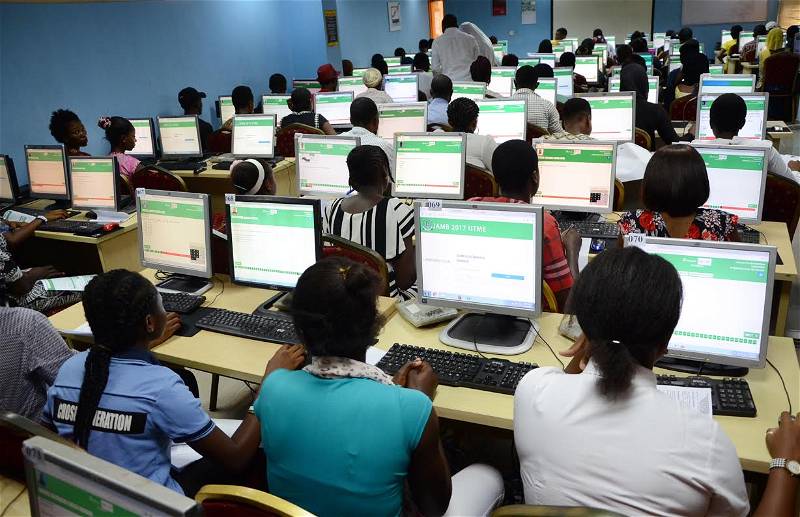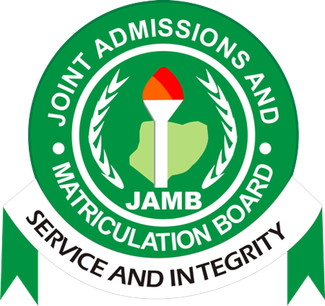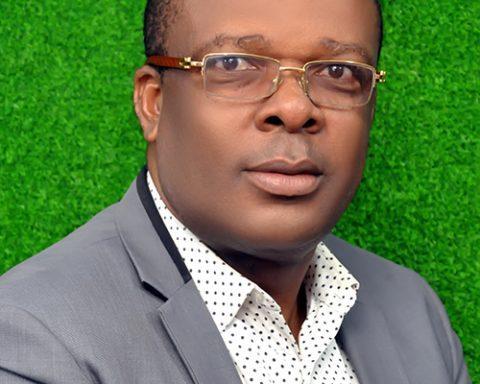The Joint Admissions and Matriculation Board (JAMB) has faced intense scrutiny over its handling of the 2025 Unified Tertiary Matriculation Examination (UTME), with over 370,000 candidates affected by technical glitches. As the board attempts to rectify the situation, questions linger about accountability and the consequences for JAMB’s failures, particularly when compared to the penalties faced by individual candidates for similar infractions.
Sometimes it is not the taking of responsibility for an action that matters, but the gravity of the action and the number of people such an action will affect, especially if a deed done can never be undone.
Join our WhatsApp ChannelSome time ago, one Mmesoma made the news about falsifying JAMB results. In July 2023, the Anambra State Government set up a panel to investigate the controversy surrounding Mmesoma Ejikeme’s UTME result. Mmesoma, a student of Anglican Girls’ Secondary School, Nnewi, had claimed to have scored 362 in the May 2023 UTME and was celebrated as the top scorer. However, JAMB later revealed that her actual score was 249, not 362.
The panel’s eight-page report, released in July 2023, confirmed that Mmesoma manipulated her UTME result herself, using her phone. A news report showed, “She admitted to having given a manipulated result by herself unaided, using the same phone Airtel number. According to her, she proceeded to the cybercafé (Prisca Global Computers, Uruagu, Nnewi) where she printed the results she had manipulated.”
Following her confession, the panel recommended that she apologise to JAMB and other stakeholders and undergo counselling. Many had their scepticism, but JAMB seemed to prevail after Mmesoma appeared to forcibly agree that her result was fake. Following this, she was barred from sitting for JAMB exams for three years and had a scholarship withdrawn. It also became clear that Nkechinyere Umeh, also from Anambra State, was the actual candidate with the highest UTME score for 2023, achieving a score of 360.
JAMB spokesman Fabian Benjamin later announced that: “In the meantime, the management of the board, after considering the weighty infraction committed by Ms. Ejikeme Joy Mmesoma, and in line with its established procedures, has withdrawn her 2023 UTME result and also barred her from sitting the board’s examination for the next three years.”
This means that the law did not take its course, ostensibly for mercy upon her and her beggarly family, as the poor girl is still waiting for three years to pursue her dreams again, even though she vehemently admitted the truth without stress.
JAMB accepted a glitch that put millions in jeopardy.
JAMB has officially acknowledged errors in the 2025 UTME results, affecting over 370,000 candidates. The Commission indeed deserves applause. Professor Oloyede apologised sincerely and took full responsibility for the error.
JAMB’s Registrar, Professor Is-haq Oloyede, explained that the problem originated from a technical glitch related to how exam questions were shuffled and delivered within the “LAG vehicle”, a grouping of states that includes Lagos and the South-east. “The shuffling process is intended to reduce cheating by ensuring candidates receive different sets of questions. After the mock exams, it was discovered that the questions were not properly shuffled in the LAG vehicle. Corrections were subsequently made and tested before the official UTME began,” Oloyede said.
The board further explained that, on the second day of the actual UTME, which was April 25, omissions in the question delivery were detected again. Although the board made efforts to fix the problem between April 25 and May 1, the patch was not fully applied because the technical service providers failed to update some of the delivery servers. So, who are the service providers? Another critical question is, if those affected did not protest, would JAMB have taken the responsibility of opening up, or even carrying out an investigation into the matter? Or maybe the board (JAMB) would not notice that something was wrong. “This failure went unnoticed until after the results were released, resulting in many candidates receiving incorrect scores.”
Trends of JAMB candidates scoring below 200
In 2022, JAMB reported that out of about 1.76 million candidates, only 378,639 scored above 200, while 520,596 scored 190 and above, and 1,192,057 scored at least 160. This indicates a significant portion of candidates scored below 200 that year. In 2023, the trend of many candidates scoring below 200 continued, with JAMB setting a general admission cut-off mark of 140 due to overall underperformance.
This shows that there have been consistent reports of low grades over these years, a continuing pattern of underperformance seen since at least 2019. Many, including parents, have attributed this trend to factors such as a lack of seriousness in preparation by the board, distractions during exams, and inadequate computer skills among candidates. For instance, replying to @Peter Obi on X (Twitter), on a post where he decried the low grades, @waxdigitala said, “As a parent, these JAMB results are heartbreaking — over 78% scored below 200. That’s not failure by students, it’s failure by the system. We raise kids with dreams, yet the same system keeps dimming their hopes. Poor funding, neglected teachers, outdated classrooms, how long will this continue?”
READ ALSO: JAMB: How To Check 2025 UTME Results
Some others attributed it to high usage of TikTok and other social media platforms by the current generation, as another user @cbngov_akin1 commented on the same post, “Na today people dey fail JAMB? Most of these children are busy on TikTok ooo.”Another user also added @MayowaQuonit, “As a parent, you are to guide your ward to pass too, some of the wards attend private school and still fail, if you were to blame the government school… I’m not saying the Government’s policy is good, but students nowadays are just on TikTok with their guardians’ eyes wide open.”
This is evidence that the public, over the years, not only sees students as the cause but also sees the organisers as part of the failure.
Let’s break down the numbers based on the 2025 UTME data:
| Candidates
| Numbers
| Percentage |
| Total candidates who sat for the exam | 1,955,069 | 100% |
| Candidates who scored above 200 | 420,415 | 21.5% |
| Candidates who scored below 200 | 1,534,654 | 78% |
| Candidates scoring below 200 and not retaking | 1,154,657 | 59.05% |
| Candidates scoring below 200 and retaking | 379,997
| 19.43% |
From the 1,534,654 candidates who scored below 200, JAMB announced that 379,997 candidates from certain centres are to retake the exam due to errors.
The above table shows that about 78.5% scored below 200. Of these, roughly 19.4% (379,997 candidates) will retake the exam due to identified errors. The remaining 59.1% scored below 200 but will not retake the exam.

This means that after excluding those retaking, around 59% of all candidates still scored below 200 legitimately, depending on what the 19.43% will score, as many would not be able to meet the announcement. JAMB announced that all affected candidates will retake the exam starting Friday, 16 May 2025.
The concern on marginalisation
JAMB has acknowledged a technical error affecting the 2025 UTME results of 379,997 candidates across 157 centres in Lagos and the South-east. Specifically, 206,610 candidates in 65 centres in Lagos State and 173,387 candidates in 92 centres across the South-east states (Abia, Enugu, Imo, Ebonyi, and Anambra) were impacted.
The issue of marginalisation of the South-East has indeed come up strongly amid the 2025 JAMB UTME controversy, with many accusing JAMB of fanning ethnic tensions. The Academic Staff Union of Universities (ASUU) chapter at the University of Nigeria, Nsukka (UNN), led by Comrade Óyibo Eze, alleged that the mass failure recorded in the exam was a deliberate attempt to sabotage South-East candidates.
Eze worried that while children from other regions could gain admission with scores as low as 120, South-East candidates were unfairly held to much higher standards, effectively marginalising them. This perception has intensified ethnic grievances, as many from the South-East and Lagos (where many Igbos reside) were disproportionately affected by the technical glitches that caused incorrect low scores.
Conflicts of the scheduling
Aside from the issue of the conflict, even if JAMB officials claim the technical glitches were unnoticed on time, are they also not aware of the effects of fixing the exam to be rewritten a few days after the announcement?
READ ALSO: JAMB: Nigerian Students Shouldn’t Write Three Exams To Gain Admission – Educationist
Many affected candidates are already enrolled in higher institutions and face clashes between the rescheduled UTME and their departmental exams. Some are pursuing additional courses and may have travelled away from their exam centres, making attendance difficult and costly, given Nigeria’s economic and security challenges. The short notice, often just a day after printing exam slips, leaves little time for adequate preparation or travel arrangements.
Psychological impact?
Candidates juggling simultaneous exams (e.g., WAEC and UTME) experience confusion and stress, as the syllabi differ and require distinct preparation. This pressure can cause anxiety, burnout, and feelings of helplessness. Tragically, following the 2025 UTME results controversy, a student named Timilehin Opesusi from Ogun state committed suicide because of the devastating psychological effects of exam-related stress and uncertainty.
How about the broader consequences? ranging from financial strain on families due to additional travel, accommodation, increased risk of accidents or insecurity during travel in volatile regions, loss of trust in examination bodies and educational institutions, and potential long-term impact on students’ academic trajectories and career plans? Today, as the rewriting starts, there is yet no indication that there will be any reprieve for those who will miss WAEC exams due to JAMB.
Does anyone have any explanation on why JAMB was not cancelled throughout the South-east and Lagos, because many of those expecting to rewrite have not been issued slips, yet their scores are not as much as they think they merit? Did you blame them? What if technical glitches have been the reason for JAMB failure over the years? Maybe the officials never noticed because no one died or protested.
The level of arbitrariness in the whole thing belittles JAMB and supports the evidence about grossly insecure JAMB systems. Who says Mmesoma may not have been vindicated, barring what now looks like a forced confession?
The question remains: Who will hold JAMB responsible for its failures? How can the board be sanctioned or made to compensate the victims fairly? While individuals like Mmesoma face personal penalties for wrongdoing that affect only her, JAMB’s systemic errors affecting hundreds of thousands demand proportionate consequences, including legal, financial, and administrative measures to restore justice and prevent future failures.
Without accountability, the integrity of Nigeria’s examination system and public trust in educational institutions risk further erosion.
Dr Mbamalu, a Jefferson Journalism Fellow, member of the Nigerian Guild of Editors and Media Consultant, is the publisher of Prime Business Africa
Dr. Marcel Mbamalu is a distinguished communication scholar, journalist, and entrepreneur with three decades of experience in the media industry. He holds a Ph.D. in Mass Communication from the University of Nigeria, Nsukka, and serves as the publisher of Prime Business Africa, a renowned multimedia news platform catering to Nigeria and Africa's socio-economic needs.
Dr. Mbamalu's journalism career spans over two decades, during which he honed his skills at The Guardian Newspaper, rising to the position of senior editor. Notably, between 2018 and 2023, he collaborated with the World Health Organization (WHO) in Northeast Nigeria, training senior journalists on conflict reporting and health journalism.
Dr. Mbamalu's expertise has earned him international recognition. He was the sole African representative at the 2023 Jefferson Fellowship program, participating in a study tour of the United States and Asia (Japan and Hong Kong) on inclusion, income gaps, and migration issues.
In 2020, he was part of a global media team that covered the United States presidential election.
Dr. Mbamalu has attended prestigious media trainings, including the Bloomberg Financial Journalism Training and the Reuters/AfDB Training on "Effective Coverage of Infrastructural Development in Africa."
As a columnist for The Punch Newspaper, with insightful articles published in other prominent Nigerian dailies, including ThisDay, Leadership, The Sun, and The Guardian, Dr. Mbamalu regularly provides in-depth analysis on socio-political and economic issues.











